Simon Thomas’ big Welsh rugby preview
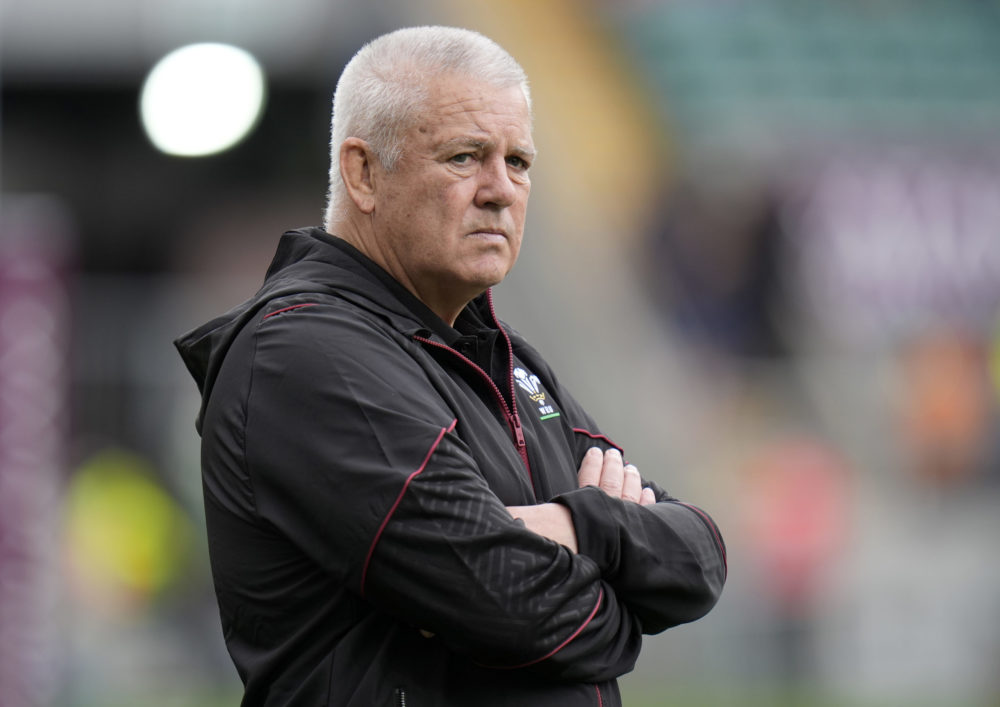
So, here we go again with another season of Welsh rugby.
These are challenging times amid severe financial constraints and the travails of the Test team.
What then can we expect and hope for from the coming campaign at international, regional and club level?
Simon Thomas considers the state of the nation.
Wales
The pressure is firmly on Wales coach Warren Gatland going into the new season on the back of nine successive Test defeats.
He’s just one loss away from equalling the nation’s worst ever run – the 10 straight defeats recorded between 2002 and 2003 under fellow Kiwi Steve Hansen.
That sequence almost cost Hansen his job. In the end, he turned things around and built a platform for a brighter future. It remains to be seen whether Gatland can do the same in his second spell at the helm.
Right now, the stats don’t make for pleasant reading. Wales have conceded an average of more than 30 points a game during the nine losses and leaked a total of 29 tries.
Last September’s 40-6 World Cup thrashing of Australia in Lyon seems a long time ago – proof that a lot can change in sport in 12 months.
The counterpoint is emphasised by the fact that the last two defeats came at the hands of the Wallabies, a team who then went on to ship 67 points against Argentina in Santa Fe.
Fiji
Wales’ barren run has seen them slip to eleventh in the world rankings, one place behind their next opponents, Fiji.
That November 10 clash against the flamboyant south sea islanders is now a real must-win game, with South Africa and Australia providing the other autumn international opposition.
Lose to Fiji and the heat really will be on Gatland.
So, is there any light amid the encircling gloom?
Well, the answer to that – thankfully – is yes.
The tour Down Under did provide some hope with encouraging performances from youngsters like Christ Tshiunza, Taine Plumtree, Archie Griffin, Ben Thomas, Ellis Bevan, Eddie James and Mackenzie Martin, while Dewi Lake was an inspiring captain and Aaron Wainwright an outstanding presence at No 8 until injury struck.
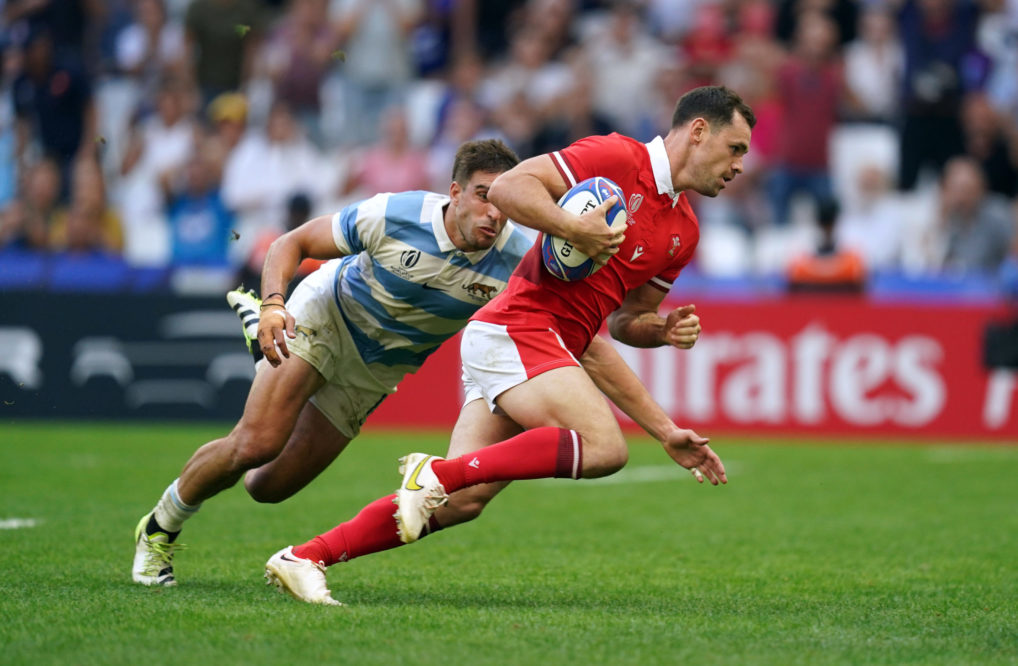
There’s also the fact that a number of experienced players who sat out the summer Tests for various reasons should be back available for the autumn campaign, including Tomos Williams, Jac Morgan, Josh Adams, Will Rowlands, Gareth Anscombe, Adam Beard, Elliot Dee, Dillon Lewis, Ryan Elias and Henry Thomas.
You could also, potentially, see a return for Taulupe Faletau which would be a timely boost with Wainwright up against it to recover from hamstring surgery in time.
With a fair few of those on board to compliment the fresh faced talent, Wales should have the makings of a competitive team.
But the question then is whether Gatland can get the best out of them in terms of selection choices and the game plan. Only time will tell.
Regional rugby
Cardiff
It’s been a very different build-up to the season at the Arms Park compared to a year ago.
There have been no fewer than 14 new players in training, amid a raft of signings.
In comparison, they didn’t have 14 players in total for much of last summer, such was the chaos and uncertainty in Welsh rugby.
At one point, the best they could manage in training was four on four!
So, it’s been a far rosier situation 12 months on, albeit one that throws up different challenges.
The main one of those is trying to gel the group together as quickly as possible and establish some cohesion.
But, on the plus side, the new arrivals have helped create real competition within the squad, with pretty decent depth considering the budgetary constraints.
Among the recruits are internationals Callum Sheedy, Aled Davies and Ed Byrne, who, along with the likes of Dan Thomas and Josh McNally, will add seasoned experience to counterpoint and complement the raft of talented youngsters.
There have also been changes on the management front, with Corniel van Zyl and Johnny Goodridge coming in as forwards and attack coaches respectively.
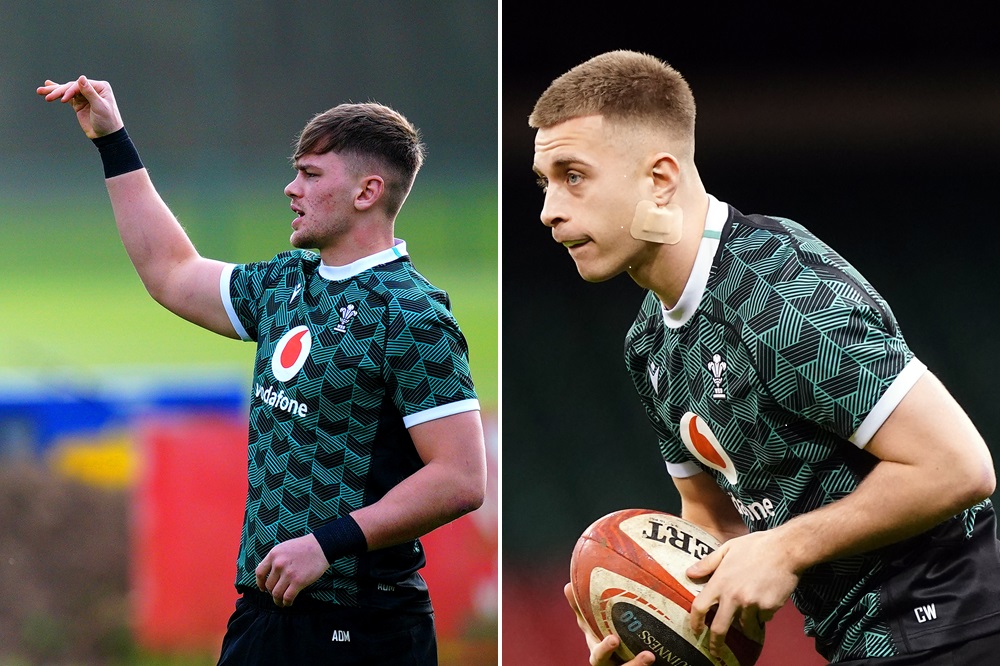
Considering the problematic build-up to last season, there were definite positives to come out of it, with the emergence of the likes of Cam Winnett, Mackenzie Martin and Alex Mann, while the fans certainly bought into the project, with three successive sell-out crowds at the Arms Park.
But, while the team was competitive, there were only four wins, amid a 12th place finish in the URC and a Champions Cup whitewash.
For head coach Matt Sherratt, the big job now is to convert the stream of narrow losses into wins, starting with the league opener at home to Zebre on Friday night.
Ins:
Callum Sheedy (Bristol)
Aled Davies (Saracens)
Ed Byrne (Leinster)
Dan Thomas (Bristol)
Iwan Stephens (Newcastle)
Josh McNally (Bath)
Johan Mulder (Lions)
Rory Jennings (Newcastle)
Danny Southworth (Exeter)
Joe Cowell (Cardiff Met)
Steffan Emanuel (Bath)
Tom Bowen (Clifton)
Josh Thomas (Newcastle)
Matty Young (Academy)
Outs:
Tomos Williams (Gloucester)
Rhys Carre (Saracens)
Shane Lewis-Hughes (Dragons)
Owen Lane (Valence Romans)
Arwel Robson (Chambery)
Uilisi Halaholo (Bay of Plenty)
Lopeti Timani (Narbonne)
Ellis Jenkins (retired)
Josh Turnbull (retired)
Ciaran Parker (retired)
Aled Summerhill
Gonzalo Bertranou
Max Clark
Mathew Aubrey
Dragons
The Gwent region only narrowly avoided finishing bottom of the URC table last season, with Zebre just a point below them.
So there will be a real drive to improve on their tally of three league wins, while also addressing their troublesome away from.
They were generally pretty competitive at Rodney Parade last term, but they picked up just one league point on the road and suffered a number of heavy defeats.
They have added some notable overseas recruits, with Aussies Steve Cummins and Harry Wilson bolstering the second row and midfield respectively, while Solomone Funaki will add Tongan physicality to the back row.
Cummins knows what Welsh rugby is all about having spent three seasons at the Scarlets and Dragons head coach Dai Flanagan knows all about him, having been down west at the time.
As for the 15-cap Funaki – who has arrived from Moana Pasifika – he will be a particularly welcome ball-carrying addition at No 8 with Wales star Aaron Wainwright set to miss the first couple of months of the season due to his torn hamstring.
There was a clear need to reinforce the fly-half position, with young Will Reed having had to take on such a heavy workload last season, and that has been covered by Lloyd Evans arriving from Gloucester, while Welsh international flanker Shane Lewis-Hughes will be out to make a mark after switching from Cardiff.
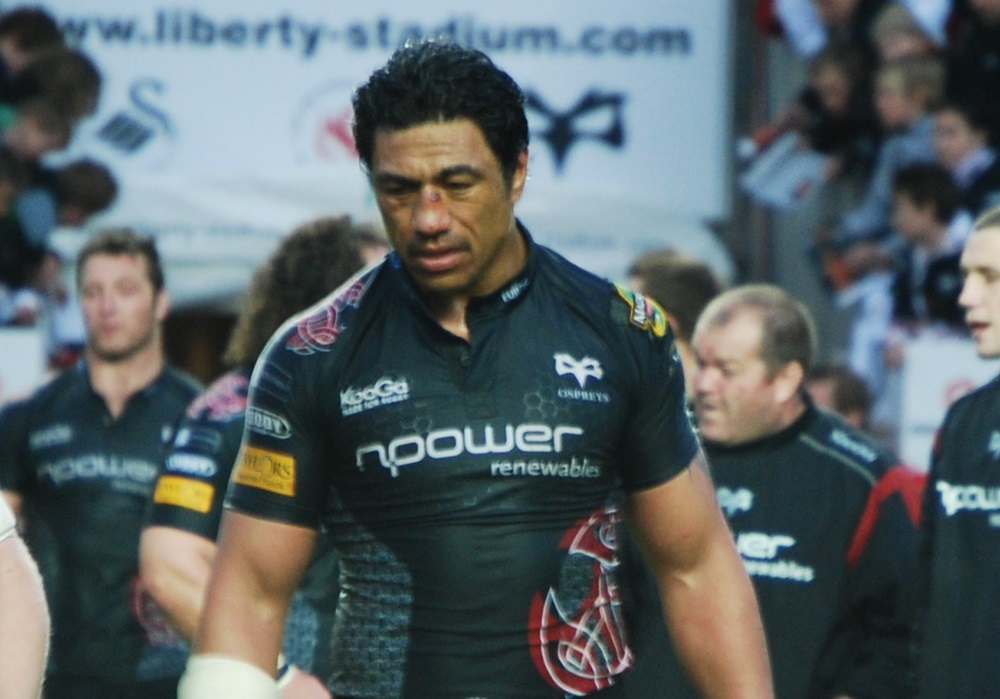
But perhaps the most significant signing of all is Ospreys great Filo Tiatia who will bring both experience and a real off-field presence as defence coach.
That’s an area that certainly needed shoring up, with the Dragons’ points difference of minus 311 having been the worst in the URC last season.
You can be certain the teak-hard Tiatia won’t put up with that kind of leaky rearguard.
Flanagan has said the former All Black will “bring steel and a stern edge” and challenge the culture of the group. You can bet your bottom dollar on that.
Ins:
Steve Cummins (Pau)
Solomone Funaki (Moana Pasifika)
Shane Lewis-Hughes (Cardiff)
Harry Wilson (Waratahs)
Lloyd Evans (Gloucester)
Oli Burrows (Exeter)
Owen Conquer (Ebbw Vale)
Harri Ford (RGC)
Owain James (Brecon)
Oli Woodman (Academy)
Outs:
Sean Lonsdale (Ealing)
Jack Dixon (retired)
Bradley Roberts (retired)
Lloyd Fairbrother (retired)
Sio Tompkinson
Aki Seiuli
Corey Baldwin
Lewis Jones
Nathan Evans
Chris Hollis
Ospreys
Only one place to start here and that’s with the bombshell which dropped just over a week ago when it was announced that this would be Toby Booth’s last season as head coach.
The Englishman has made a massive impact since taking the helm in 2020, re-establishing the Ospreys as Wales’ leading region.
Steady progress culminated in last season’s outstanding campaign as they punched way above their weight to reach the quarter-finals of both the URC and Challenge Cup.
They won 14 of their 25 matches in all competitions, while their home form was particularly impressive, with
10 victories from 12 matches representing an 83.3 per cent success rate.
The achievement was all the more notable given the reduction in playing budgets and squad numbers across the regional game, not to mention the injury issues Booth had to contend with.
But, to use his oft repeated phrase, “they found a way”.
So it’s understandable that Ospreys fans should be saddened at the news of his impending departure.
What’s certain is he will be determined to bow out on a high before handing over the reins to defence coach Mark Jones.
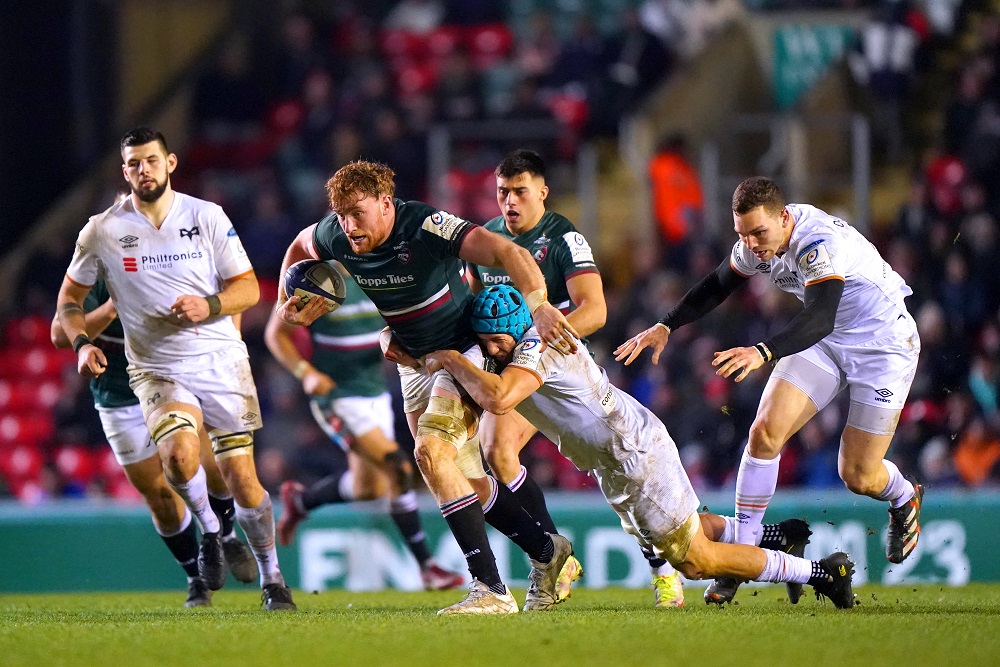
Similarly, club legend Justin Tipuric will want to have a final season to remember as a player ahead of joining the coaching staff.
The bulk of the squad that performed so well last term has been retained. However, the loss of prop Nicky Smith to Leicester is a blow, while there’s a huge amount of back line experience having moved on with the departure of George North and Alex Cuthbert.
As for the new recruits, Kieran Hardy will add international nous to the scrum-half department, while Phil Cokanasiga – younger brother of Joe – will be one to watch in the centre, with Steff Thomas switching from the Scarlets to join cousin Gareth Thomas in the loosehead locker.
In terms of those already on board, there will be much excitement over the continued development of Morgan Morse, with Dewi Lake, Jac Morgan, Adam Beard, Keelan Giles and Mr Consistent Morgan Morris set to be key men.
So now it’s over to Mr Booth for one last hurrah.
Ins:
Kieran Hardy (Scarlets)
Will Greatbanks (Soyaux-Angouleme)
Steff Thomas (Scarlets)
Phil Cokanasiga (Leicester)
Ryan Conbeer (Scarlets)
Outs:
Nicky Smith (Leicester)
George North (Provence Rugby)
Mat Protheroe (Hawke’s Bay)
Toby Fricker (New England Jacks)
Cam Jones (Cornish Pirates)
Jack Regan (retired)
Alex Cuthbert
Dom Morris
Will Hickey
Scarlets
There’s the sense of an end of an era and a new beginning at the Scarlets.
Three of the club’s modern-day greats have moved on over the summer, with hooker Ken Owens retiring and centres Jonathan Davies and Scott Williams departing.
With Lions prop Wyn Jones and Wales scrum-half Kieran Hardy also heading for pastures new, that’s a lot of experience leaving the building.
So the onus now passes to another generation to take up the baton.
There is certainly plenty of young talent on board, with the likes of Carwyn Tuipulotu, Eddie James, Sam Costelow, Taine Plumtree, Joe Roberts, Tom Rogers, Ioan Lloyd, Dan Davis and Macs Page.
Then there are the older internationals in Vaea Fifita, Ryan Elias, Sam Lousi and Alex Craig, a contingent extended by the signing of props Henry Thomas and Alec Hepburn, plus Springboks squad hooker Marnus van der Merwe.
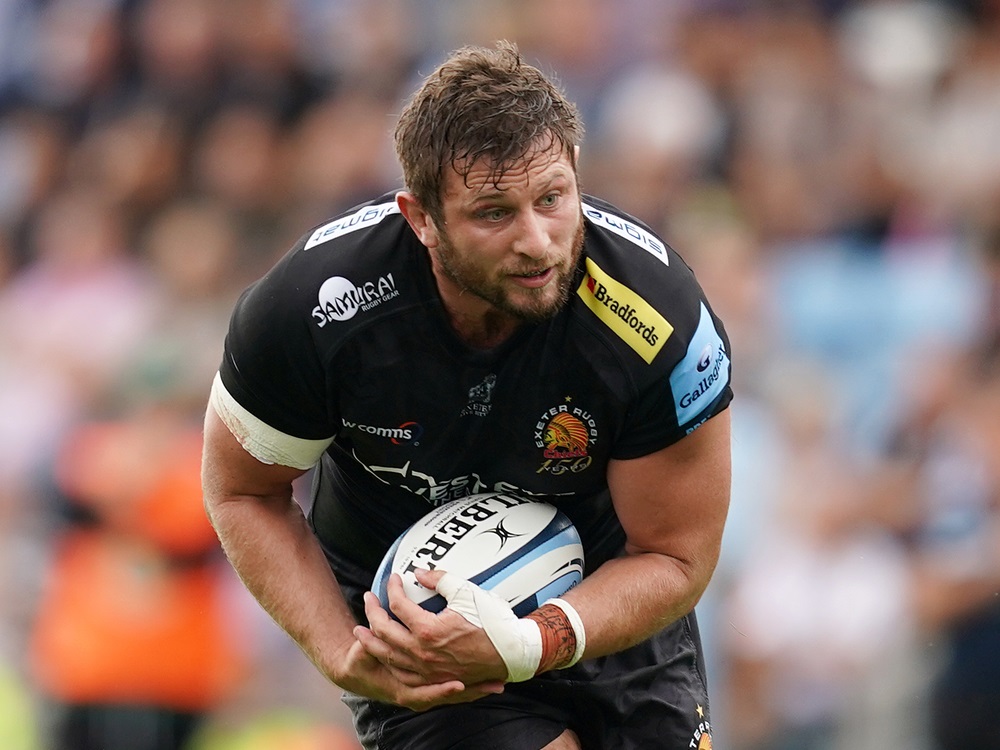
Reinforcing the pack has certainly been a priority in the recruitment drive, with Aussies Max Douglas and Archer Holz joining the front five crew, while Welsh-qualified utility back Blair Murray could be an exciting addition behind following his arrival from New Zealand.
There’s also been a significant arrival off the field, with the vastly experienced Leigh Jones coming in as Rugby Performance Director to work alongside head coach Dwayne Peel.
Jones has been there, seen it and done it. He was part of Graham Henry’s Wales management team some 20 years ago – when Peel was a player – and also coached Ebbw Vale, Newport, the Dragons and Wales A, going on to have spells in Hong Kong, Japan – where he assisted Eddie Jones – and England, most latterly as Leicester’s general manager.
His goal will be to help build a winning team as the Scarlets look to improve on last season’s tally of five victories which saw them finish 13th in the URC.
Ins:
Henry Thomas (Castres)
Alec Hepburn (Exeter)
Marnus van der Merwe (Cheetahs)
Max Douglas (Yokohama Canon Eagles)
Blair Murray (Canterbury)
Archer Holz (Waratahs)
Ellis Mee (Nottingham)
Outs:
Kieran Hardy (Ospreys)
Wyn Jones (Harlequins)
Steff Thomas (Ospreys)
Teddy Leatherbarrow (Sedgley Tigers)
Dan Jones (Ealing)
Ryan Conbeer (Ospreys)
Eduan Swart (Pumas)
Joe Jones (Doncaster)
Iwan Shenton (Ampthill)
Ken Owens (retired)
Jonathan Davies
Scott Williams
Super Rygbi Cymru
There’s a significant change in the structure of the Welsh game this season, with the creation of a new competition below regional level.
Titled ‘Super Rygbi Cymru’, it features ten clubs from last term’s 14-team Premiership – Aberavon, Bridgend, Cardiff, Carmarthen Quins, Ebbw Vale, Llandovery, Newport, Pontypool, RGC, Swansea.
It’s the culmination of a long-held desire by the WRU to create a streamlined, more elite league as the second tier of Welsh rugby, with the focus on driving up standards and enhancing the player development process.
To quote Union boss Nigel Walker, the goal has been to create “a finishing school” for the regional game.
Doing so has not been without its challenges, amid a fair amount of controversy and contention.
Former Premiership champions Pontypridd and Merthyr both declined to seek inclusion, concerned over the financial implications of a reduced number of home games. Merthyr chairman Sir Stan Thomas went as far as to call it “commercial suicide”.
Then Neath were left fuming when they were the only original applicant not to be selected, ahead of eventually losing out to late bidders Cardiff for the tenth and final spot.
So it hasn’t been plain sailing, by any means.
But we are here now and the new league is up and running, with the first round of matches having just been completed.
Grand Final
Each team will play 18 home and away fixtures before progressing to three rounds of play-offs and a grand final. In addition, there will be a cup competition during the Six Nations period, providing a minimum of 23 games in all.
There will be a salary cap in place, with the ten clubs allowed to spend up to £150,000 on a squad of 32 players, with the WRU providing £105,000 to each team, an amount the clubs have to match themselves.
S4C will be showing games live on Thursday nights, while also putting out a highlights show on Tuesdays.
On the field, there will be an intriguing innovation, with a second bonus point available for teams who win games by 15 points or more.
As for promotion and relegation, well there won’t be any, with the new competition ring-fenced for three years.
Below SRC, there is a reshaped 13-team Premiership, where Pontypridd, Merthyr and Neath will be up against the likes of Cross Keys, Newbridge, Bargoed, Brecon, Bonymaen and Cardiff Met.
All in all, it’s the biggest structural shake-up in Welsh rugby since the creation of the regions in 2003. So, let’s see how it fares and whether it delivers the desired results.
Support our Nation today
For the price of a cup of coffee a month you can help us create an independent, not-for-profit, national news service for the people of Wales, by the people of Wales.





Club rugby is dead in Wales. Super Rygbi Cymru is nothing more than regional development teams, who will farm out substandard regional younsters, whilst controlling every facet of the clubs coaching & management structure. Each clubs entire history now lies in tatters as they have sold out their entire history & fans. Respect to Ponty & Merthyr as the only ones who have resisted this.
WELSH RUGBY IS DYING.
That’s one way of looking at it and Ponty and Merthyr are absolutely entitled to look after themselves and their best interests.
Another viewpoin is that the SRC clubs are those who are willing to put aside self-interest to help develop the next generation of Welsh professionals and internationals.
Moan, moan. Nothing positive as usual. Is it really the WRU that is the problem or the negativity of many so called Welsh rugby supporters?
Club rugby is not dying, it has been gradually killing itself because those in charge don’t think about anything but themselves and the short term. We needed to cut down to 4 teams, which brought short term success but now failing because they want to revert to being clubs, just to look down on other clubs rather than pull together for the greater good. Respect to Ponty and Merthyr was lining the pockets of 35 year olds ten years past their best, who just slow down rugby to a slug fest with zero development value. Hence them now play on… Read more »